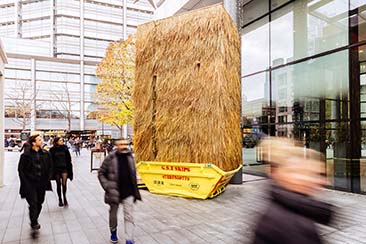I say, there aren’t too many names like this to the pound, what? Hubert de Cronin Hastings was for decades the backbone of leading periodical The Architectural Review, influencing both the evolution of the publication and helping to shape the development of post-war town planning. Now an exhibition is being held at WORK, London, looking back at his professional life through The Architectural Review.
There’s plenty of material to draw on, as Hastings spent nearly 50 years working at the journal. He became joint director in 1925, working in a number of senior roles during his career, and by the time of his retirement in 1973 had seen the rise (and possibly fall) of modernism, and coined a word into the architectural lexicon that would define his tenure. Hastings was disillusioned with the direction of British architecture following the Regency period, and hoped to see a reconnect between art and life that had been broken during the Victorian era. Under his direction, The Architectural Review championed what became known as “Townscape” – not Hastings own word but one he succeeded in popularising – which stood for the psychological needs of the individual in society, a renewed faith in the amateur, appreciation for the accidental features of towns, and an idea of progress in which new development would be integrated with the existing urban history. The Architectural Review: A Cover Story, which features rare back issues and related items, is running from 29 May until 28 June.
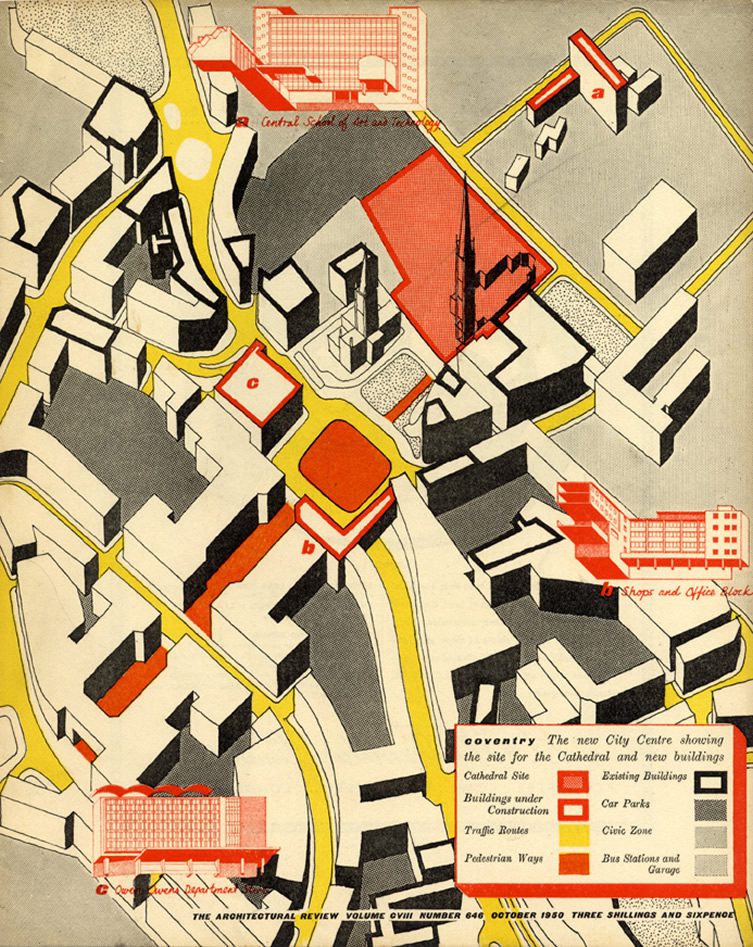
The Architectural Review,
October 1950
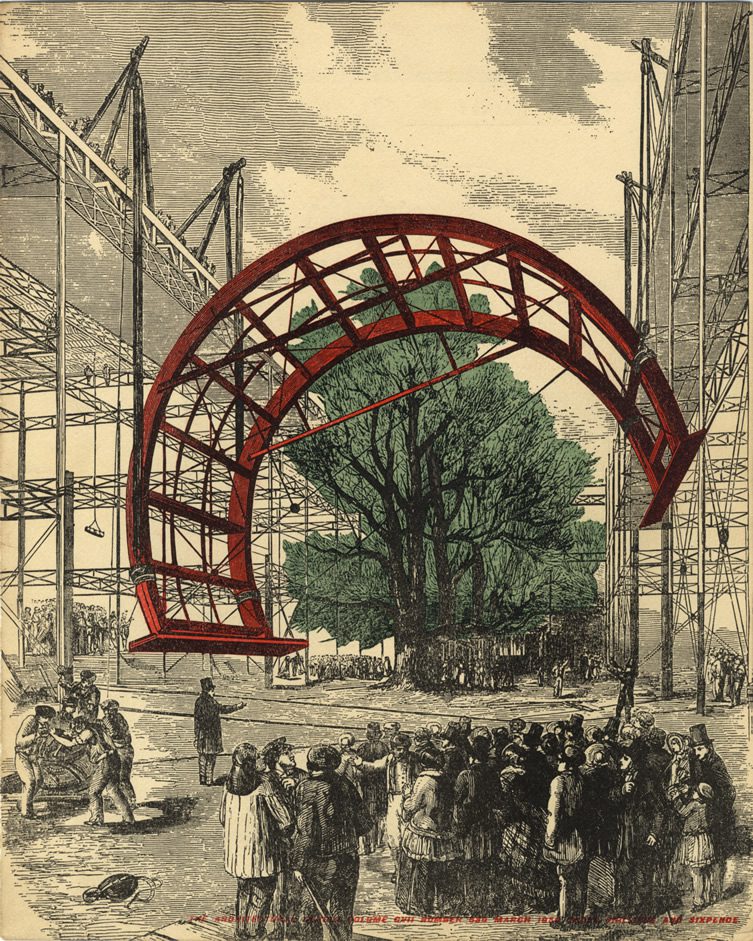
The Architectural Review,
March 1950
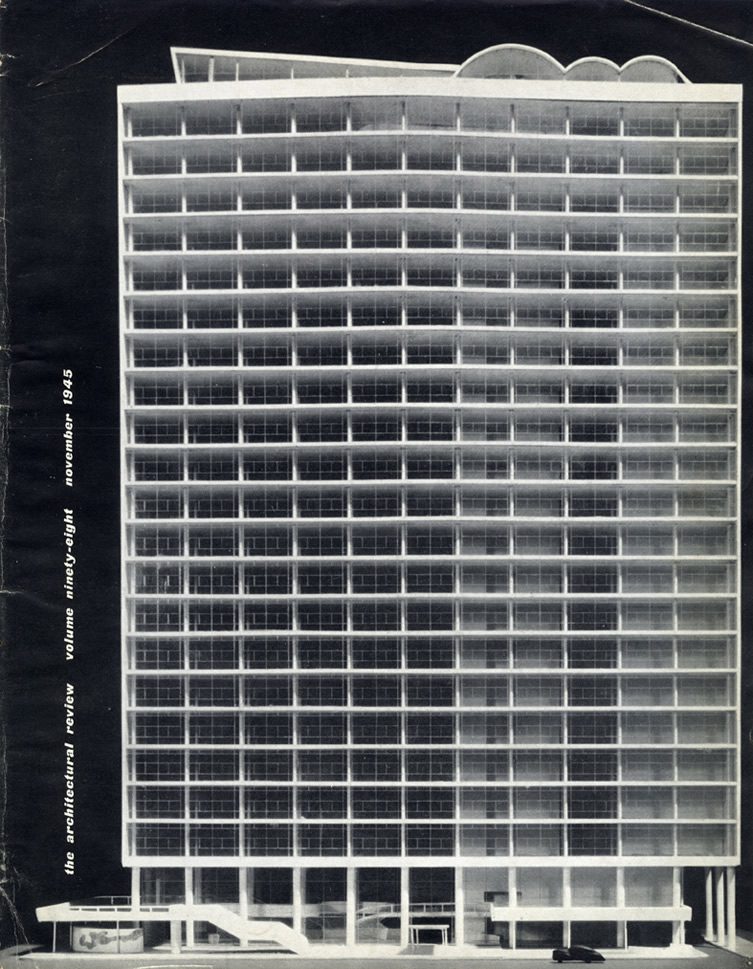
The Architectural Review,
November 1945
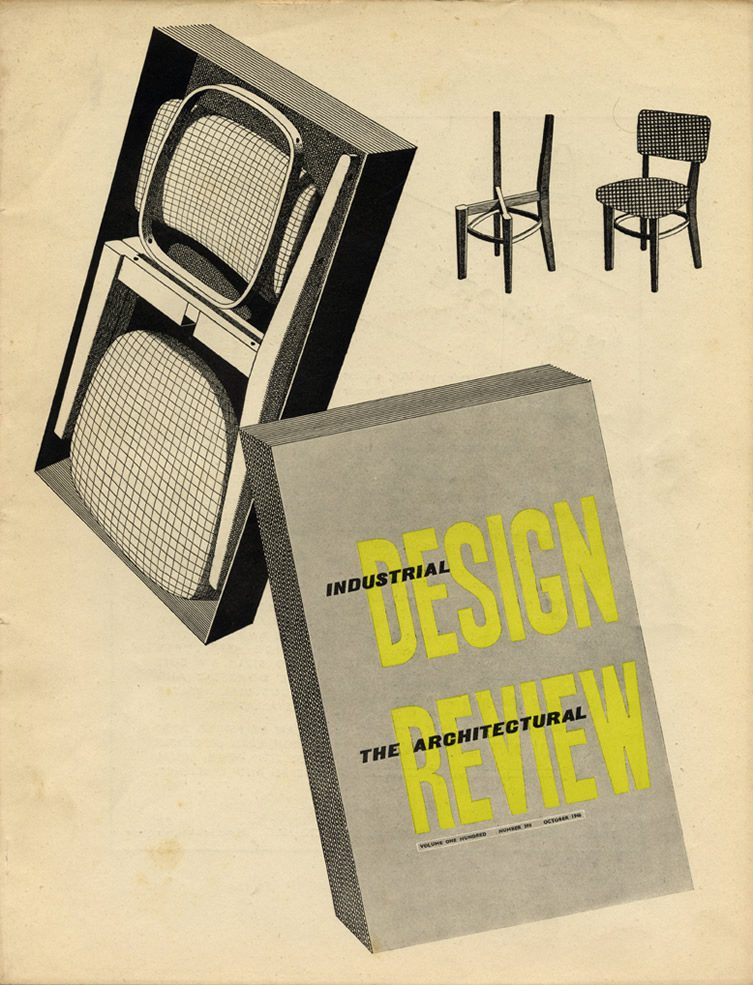
The Architectural Review,
October 1946
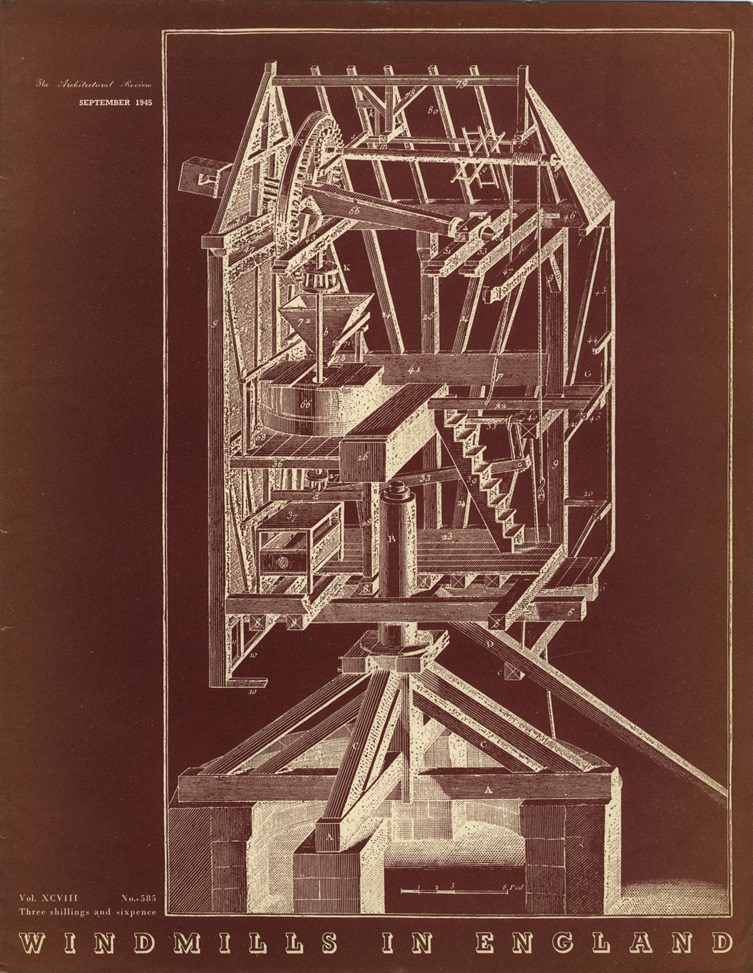
The Architectural Review,
September 1945
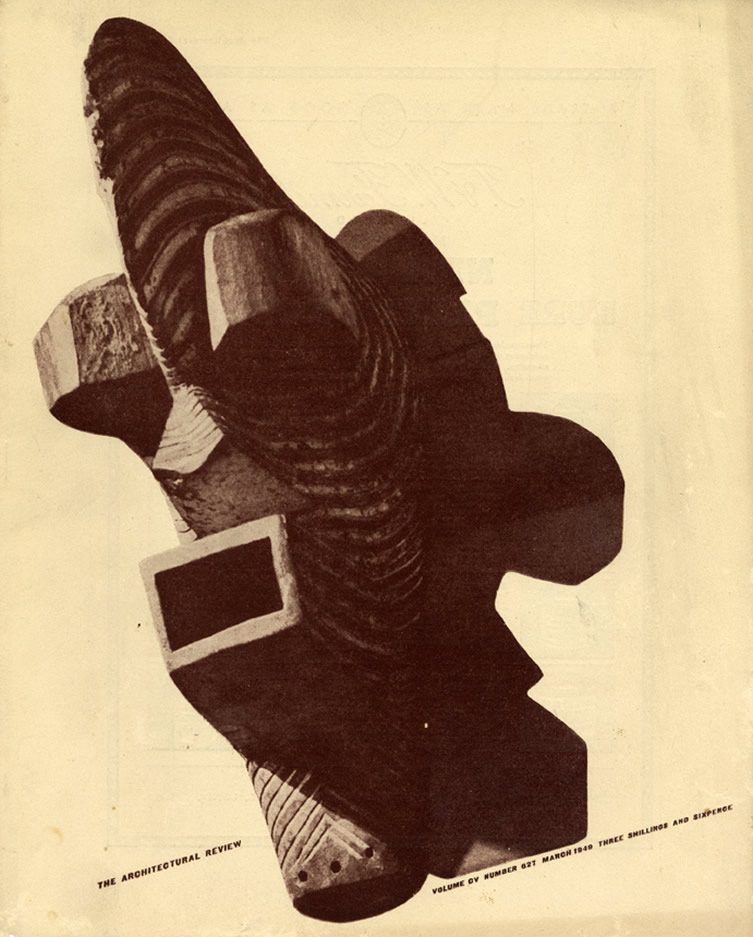
The Architectural Review,
March 1949
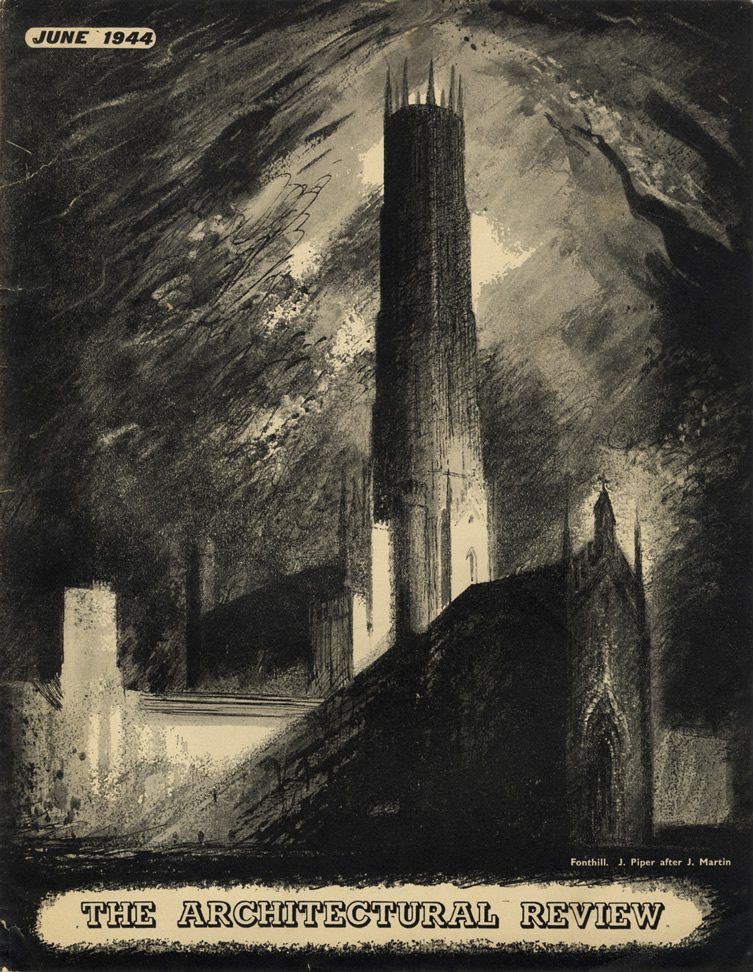
The Architectural Review,
June 1944
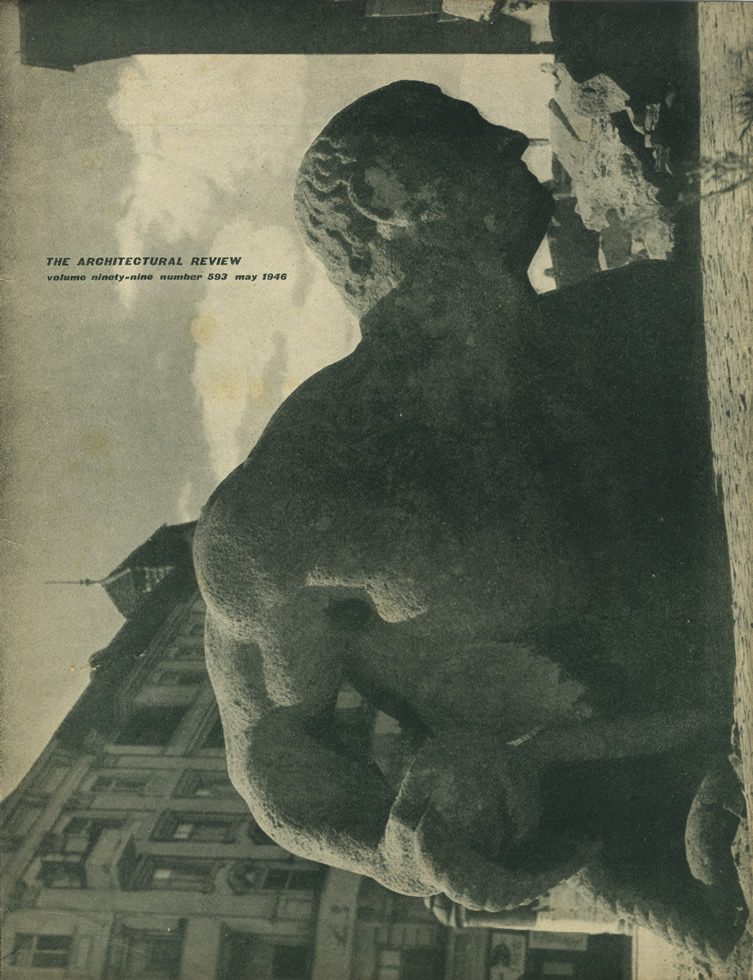
The Architectural Review,
May 1946
All images © The Architectural Review


